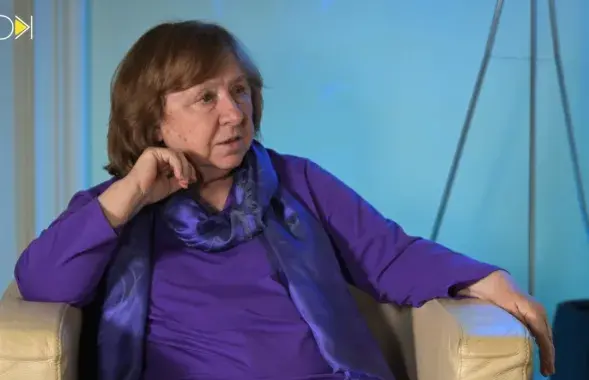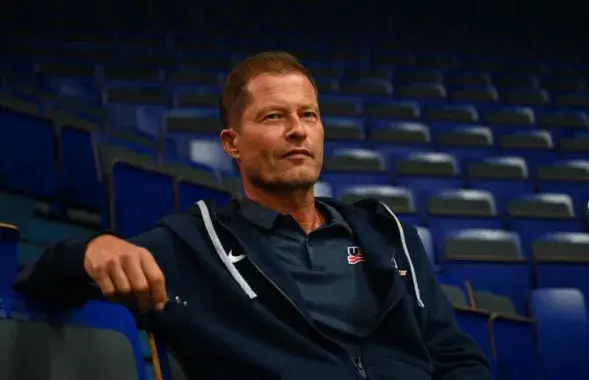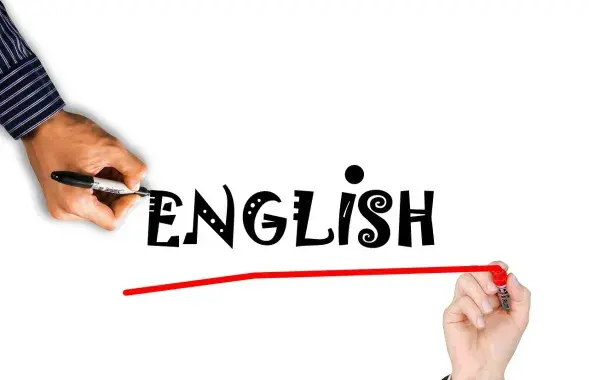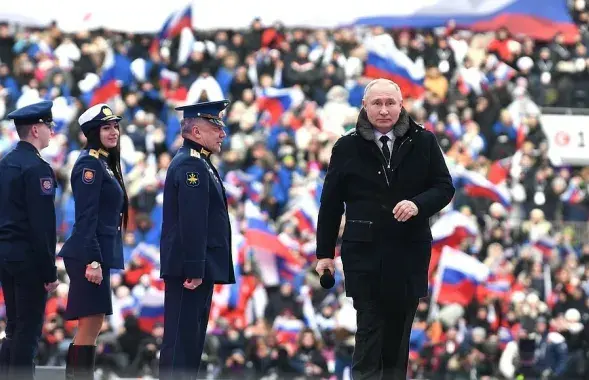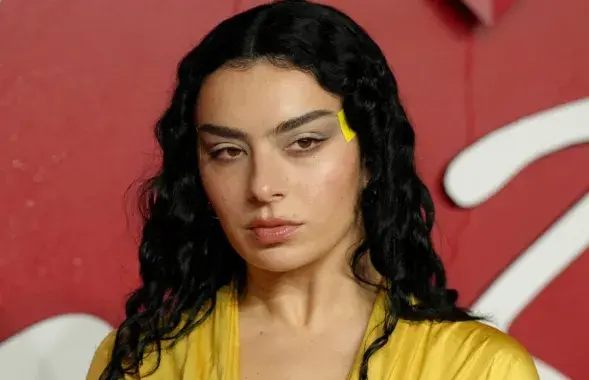Belarus sports' doping: Victim or trend?
Belarus' National Anti-Doping Agency chief Aliaksandr Vankhadla tells Euroradio if athletes are to be jailed for steroids cheats
Following the 2012 Olympic Games in London, four Belarusian athletes found themselves involved in doping scandals. All of them had been treated as Belarus' sporting stars on the nation's Top 10 Athletes of the Year lists on several occasions.
Meanwhile, the National Anti-Dopying Agency (NADA) has grown into a significant player within the Ministry of Sports' community.
NADA, located in a dark building constructed under Soviet leader Nikita Krushchev in 1960s, occupies only several offices. The doping commissioners share the building with a dormitory and the University of Physical Culture and Sports.

The Belarusian anti-doping laboratory is seeking to qualify for international accreditation.
"As of today, only 32 labs are accredited with the World Anti-Doping Agency (WADA). We are now in the process of waiting for a permit to enter the pre-accreidtation phase that lasts for two years. In this period, WADA checks the qualification of staff and their equipment," explains Aliaksandr Vanhadla, director of NADA. ― When the Belarusian laboratory gets accreditation, the test results for any athlete analyzed here will be valid around the world."
Euroradio: So you can't test Daria Domrachava yet?
Aliaksandr Vankhadla: Our doping officers can take samples from Domrachava, Armstrong or anyone else. Then, a sample is to be dispatched to an accredited laboratory - normally in Moscow or sometimes in Cologne. It's important to understand that anti-doping agencies and laboratories work independently in order to avoid pressure.
Euroradio: How many samples can the Belarusian laboratory test?
Aliaksandr Vankhadla: In the period from January 1 to March 20, 646 samples have been taken. That number includes 483 samples from the athletes aged before 23. Our target for 2013 is to take 2200 samples. To qualify for WADA accreditation, a lab should run at least 3000 tests. It is not so easy so far. Only five doping officers work with NADA.
Euroradio: How many athletes were caught doping?
Aliaksandr Vankhadla: 11 violations. 8 people were disqualified. 3 athletes took narcotics in-between competitions. 4 cases are still being probed.

Euroradio: Do athletes often try to dodge or run away from doping officers?
Aliaksandr Vankhadla: There were two cases this year against six in the previous year. But I should explain right away that this is pointless, because dodging a doping test - if it is confirmed by a disciplinary commission - leads to two years of automatic disqualification.
Euroradio: Nearly all throw stars from Belarus - Yatchanka, Ostapchuk, Tsikhan, Dzeviatouski, Mikhnevich - are accused of doping after recent re-tests of their 2005 samples when the traces of banned steriods were found. I remember calling WADA and talking to a high-ranking official there who said vaguely: "Your athletes are strong, so we are checking them." What's the matter? Perhaps, everyone takes dope, but only our athletes get tested?
Aliaksandr Vankhadla: We sent an inquiry asking to explain why only our athletes were tested. We got no reply twice. But under the standards, there should be serious criteria for testing, namely the doping suspicions and information from the the third parties. As far as Belarus athletes are concerned, I reckon that IAAF (International Association of Athletics Federations) possesses some information. I am being asked may questions: is it a revenge for the court battle won by Tsikhan and Dzeviatouski? But I don't think that international organizations have something to do with revenge. I believe if they had information about athletes from other countries, they would have checked them as well. But I will stress once again: we do not have information that some other athletes from other countries were checked as well. Perhaps, they took athletes from 100 countries but only ours got caught. Or maybe they checked only Belarusian athletes. This is closed information.
Euroradio: There has been no information about the situation with Nadzeya Ostapchuk who had her London Olympics gold over the past seven months. Why does it take so long to disqualify? We have regularly contacted IAAF but they are keeping silence. Our Athletics Federation does just the same.
Aliaksandr Vakhandla: The probe is still in progress. Coaches, the Federation and us are still being asked questions. This is an extraordinary case here. They have the right to run an investigation for as long as they see it fit. Under the rules, no official information is issued before decisions are taken.
Euroradio: What sports generate the bigggest interest from your doping officers?
Aliaksandr Vankhadla: Since 2010, violations have been spotted in twenty-three sports, for instance, wrestling and skating. The majority of violations is recorded in the field and tracks and weight-lifting. Yet this is not a fact that doping exists there.
Euroradio: The latest doping scandal involved Mikhalyou, an ice hockey player. He was reportedly tested during the Olympics qualification. Does NADA try to test the "purity" of ice hockey players and professional footballers?
Aliaksandr Vankhandla: In fact, we check the national team very often as well as other ice hockey teams. Normally, it happens before traveling to championships. But we do not chek ice hockey clubs, because there are some technical issues associated with the budget and funds-saving. As for football, unfortunately, we do not deal with them. There are two reasons for that: firstly, FIFA has objected to doping controls internationally for a long period of time. You can also imagine the number of Olympic and non-Olympic federations [acting against the doping control]. Our staff is rather small. Physically, we do not have resources to deal with football properly for now.
Euroradio: There are voices claiming that Belarus' current failures in sports are caused by the fact that our sporting medicine lags behind the foreign pharmacologists and doctors. The doping scandals also demonstrate that our athletes are not properly educated and prepared.
Aliaksandr Vankhadla: I reckon we are really lagging behind. There is no point in denying. But here is what I would like to stress. If an athlete is deprived of something, s/he should be given something as replacement. In the old times, many athletes would dope. Later, when some substances were banned, many nations started introducing a very serious and legal pharmocology to replace the doping. When we say today: "Stop taking this steroid. We are to give you a hawberry drink", we are definitely not to persuade an athlete. Currently, there are some problems with purchasing the state-of-the-art pharmacology. This is linked with licenses, registration and so on. Our own pharmacology achievements are not sufficient for our athletes to feel that s/he is given something legal and efficient.
Euroradio: What is your stance as per doping? Belarus' swimming star Aliaksandra Herasimenia once recalled the early 2000s when her food was dosed and she eventually lost 10 kg and spent almost a year to recover. Moreover, she was disqualified for some time.
Aliaksandra Vanhadla: On this I have a very precise stance. We promote the criminal prosecution for underage attempted and actual doping, including the prosecution of athlete's staff. It happened that a 15-year-old child (in fact we had 14-year-olds) Здараецца, што 15-гадовае дзіцё (а ў нас трапляюцца і 14-гадовыя) that took steroids as prescribed by the coach or the doctor. We do not envisage criminal responsibility for athletes. You can't just put all in prison. But doping substances turnover should be controlled by the Penal Code. If we do not remove the trade, it will be very difficult to stop this problem. Unfortunately, there have been cases around the world when competition is eliminated by dosed food or drinks of athletes. Apart from Ostapchuk case, there has been no dosing incident in Belarus over the past several years. There was only one attempt (without naming the sport), but no dosing did take place.

